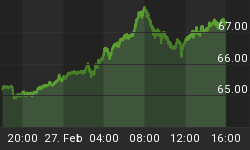Despite his widely popular dance moves at the Tesla Shanghai factory last year, Elon Musk--via Tesla--could pose a national threat to China, according to the authorities in Beijing.
According to Bloomberg, China has banned the use of Tesla cars by state and military employees on certain government properties expressing concerns over cameras and sensors in the vehicles
Tesla cars are now prohibited from entering People's Liberation Army facilities and military housing complexes.
The South China Morning Post reported that the military ban was issued a couple of weeks ago following an investigation by the Chinese State Administration for Market Regulation.
While the investigation focused on acceleration, battery fires and other safety concerns, the regulators also sought information on Chinese user data collected by Tesla and whether the automaker is taking user data out of the country.
Tesla did not immediately respond but Musk downplayed the issue while speaking at the China Development Forum.
“If Tesla used cars to carry out espionage activities in China or anywhere, we will get shut down … There’s a strong incentive for us to be confidential,” Musk said at the virtual meeting.
He also compared the Tesla espionage concerns to the Trump administration’s attack on Tik-Tik, the Chinese-owned video platform, and threats to ban it as a national security concern. Musk called for mutual trust, saying that it would be ideal if everyone trusted each other.
For a while now, Tesla has enjoyed favored status from the Chinese government as the first foreign automaker to establish wholly owned production in the country.
In 2019, the company began manufacturing cars at the Shanghai Gigafactory to bolster its presence in what is absolutely the world's largest car market. Today, China accounts for 30% of Tesla’s global sales, in turn leading the EV giant to post its first annual profits in 2020.
For 2020, Tesla's China sales hit 111,600 vehicles or nearly 20,000 more than all three Chinese competitors combined.
In January, Tesla released its new Model Y in China for a lower-than-expected price that’s reportedly causing a run of advance orders. Prices start at $52,074, not counting a handsome government subsidy for prospective buyers, representing a 30% discount.
But all of this Chinese fame also comes with a significant amount of scrutiny, not the least from regulators.
Last month, Tesla was summoned by Chinese officials to face questions about the quality of its Shanghai-made cars following numerous complaints by consumers. Since the fourth quarter of last year, Tesla issued three vehicle recalls in China.
Still, Tesla saw an eightfold jump in share price in 2020, making it the eighth-largest company by value in the world. In December, it joined Wall Street’s S&P 500 index, becoming its sixth-largest member accounting for 1.69% of the index.
Even though Tesla's valuation seems crazy to many by any traditional measure, the predictions for Tesla’s future are still wild.
Ark Invest just released a new price target on Tesla at $3,000 per share by 2025--up from around $690 today. The boost comes from Ark’s belief that self-driving cars will be more successful than we think, and faster than we think.
















